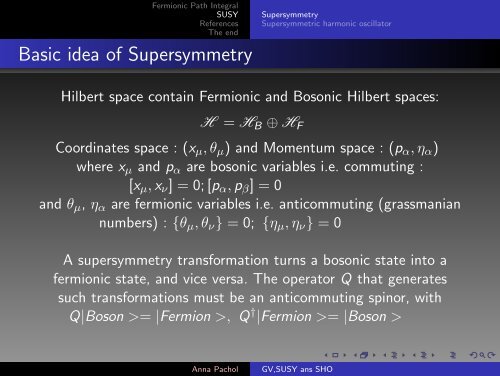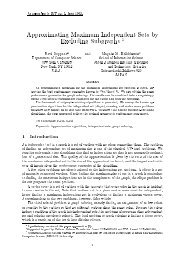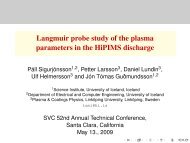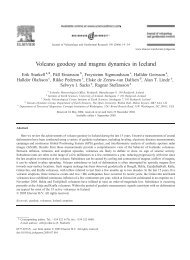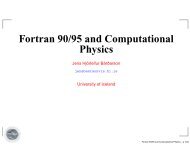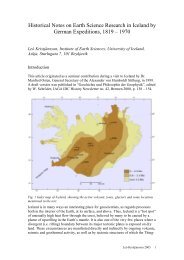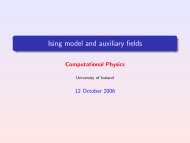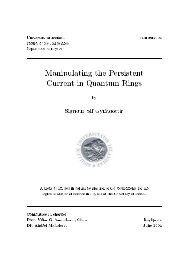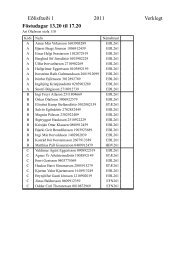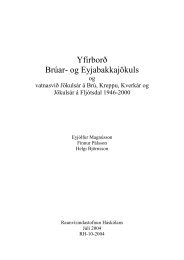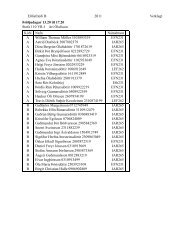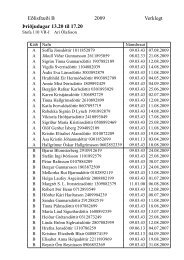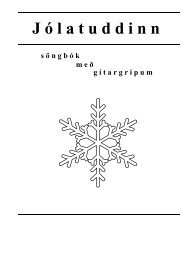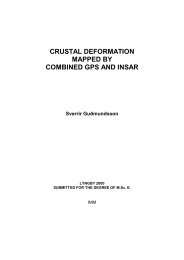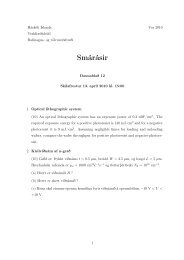Grassmann Variables, Supersymmetry and Supersymmetric ...
Grassmann Variables, Supersymmetry and Supersymmetric ...
Grassmann Variables, Supersymmetry and Supersymmetric ...
You also want an ePaper? Increase the reach of your titles
YUMPU automatically turns print PDFs into web optimized ePapers that Google loves.
Fermionic Path Integral<br />
SUSY<br />
References<br />
The end<br />
Basic idea of <strong>Supersymmetry</strong><br />
<strong>Supersymmetry</strong><br />
<strong>Supersymmetric</strong> harmonic oscillator<br />
Hilbert space contain Fermionic <strong>and</strong> Bosonic Hilbert spaces:<br />
H = HB ⊕ HF<br />
Coordinates space : (xµ, θµ) <strong>and</strong> Momentum space : (pα, ηα)<br />
where xµ <strong>and</strong> pα are bosonic variables i.e. commuting :<br />
[xµ, xν] = 0; [pα, pβ] = 0<br />
<strong>and</strong> θµ, ηα are fermionic variables i.e. anticommuting (grassmanian<br />
numbers) : {θµ, θν} = 0; {ηµ, ην} = 0<br />
A supersymmetry transformation turns a bosonic state into a<br />
fermionic state, <strong>and</strong> vice versa. The operator Q that generates<br />
such transformations must be an anticommuting spinor, with<br />
Q|Boson >= |Fermion >, Q † |Fermion >= |Boson ><br />
Anna Pachol GV,SUSY ans SHO


